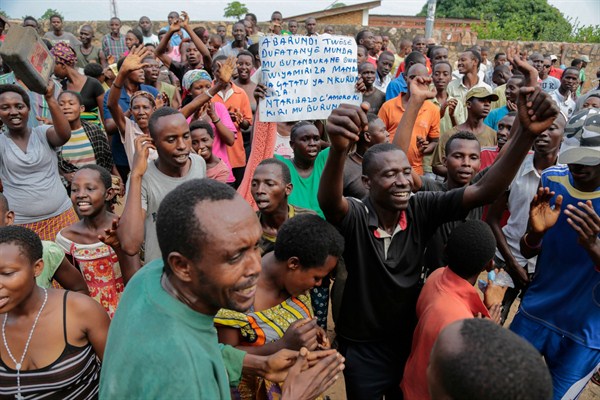After years of political unrest in Burundi, the country is now in the midst of an authoritarian crackdown.Even as the human rights sphere shrinks, there are signs of a deepening ethnic crisis in Burundi.
In early December, the tiny east African country of Burundi garnered international attention when its Foreign Ministry, at the request of President Pierre Nkurunziza, called for the closure of the U.N. human rights office in the capital, Bujumbura. The move was not altogether surprising from a regime once called one of “the most prolific slaughterhouses of humans in recent times” by former U.N. rights chief Zeid Raad al-Hussein. Still, it came as a blow to human rights activists who had pinned their hopes on the international reach of the United Nations.
Rights activists insist a true accounting of those disappeared and killed by state authorities is nearly impossible given the restrictions imposed on international NGOs and the media by Nkurunziza. Those who have escaped detention describe grotesque strategies of torturing perceived opponents of his regime in jails and in unmarked sites scattered throughout the country. In the face of sanctions from the U.S. and the European Union, Burundi became the first country to withdraw from the International Criminal Court in October 2017 after ICC judges authorized an investigation into allegations of government-sponsored murder, rape and torture.

